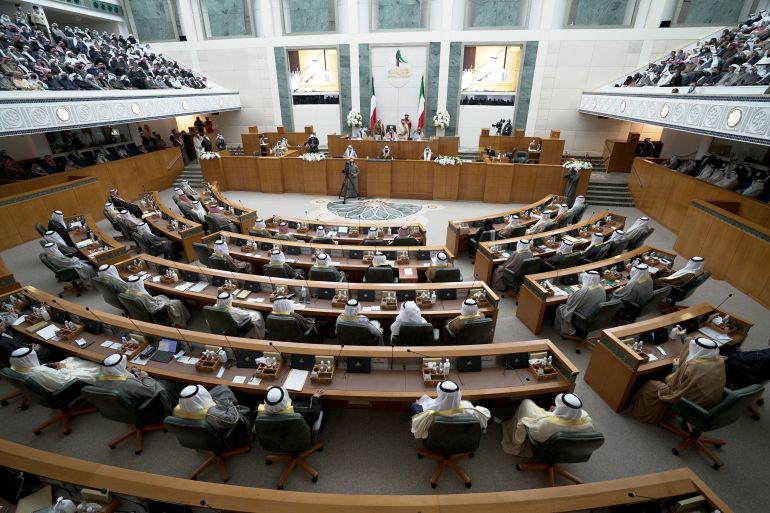Kuwait crown prince announces new elections
Crown prince says newly reinstated parliament to be dissolved and elections held in coming months.

Kuwait’s crown prince has said that the parliament reinstated based on a Constitutional Court ruling last month would be dissolved and that new legislative elections would be called in coming months, state media reported.
“We decided to dissolve the 2020 National Assembly, which was reinstated by the Constitutional Court … and we will call for holding general elections in the next months,” Crown Prince Sheikh Meshal Al-Ahmad Al-Jaber Al-Sabah said on Monday in an address on behalf of the ruling emir, who has handed over most of his duties to him.
Keep reading
list of 3 itemsKuwait’s new government revealed, the seventh in three years
Kuwait court nullifies 2022 vote, reinstates previous parliament
The Gulf Arab state, a member of the Organization of the Petroleum Exporting Countries (OPEC), has been grappling with prolonged bickering between the government and elected parliament that has hampered fiscal reforms.
Parliament had been dissolved last year in a bid to end the feuding and early elections were held in September, in which the opposition made gains. The Constitutional Court in March annulled the polls and restored the previous assembly.
The crown prince said the “will of the people” required new elections that would be “accompanied by some legal and political reforms to take the country to a new phase of discipline and legal reference”. He did not specify the reforms.
Kuwait bans political parties but has given its legislature more influence than similar bodies in other Gulf monarchies, and political stability has traditionally depended on cooperation between government and parliament.
The United States-allied country has strong fiscal and external balance sheets, but infighting and gridlock have hampered investment and reforms aimed at reducing its heavy reliance on oil revenues.
Prime Minister Sheikh Ahmad Nawaf Al-Sabah, the emir’s son, had in January submitted his government’s resignation due to friction with the parliament elected last year. He was renamed premier in March and a new cabinet was announced this month.
Relations between the prime minister and the speaker of the reinstated parliament, elected in 2020, have been tense.